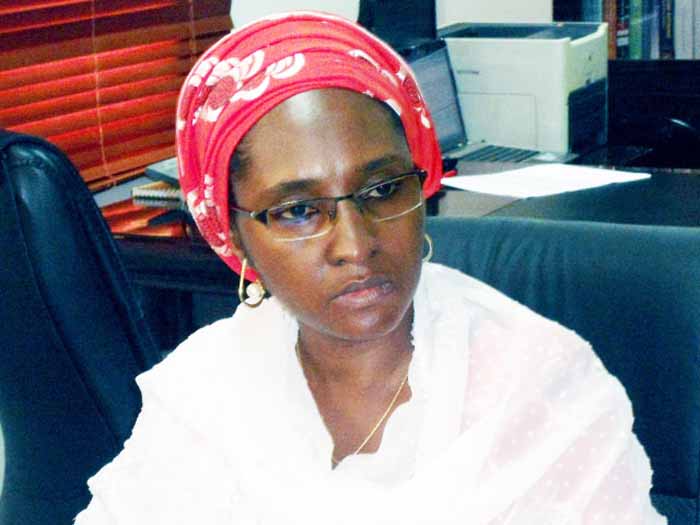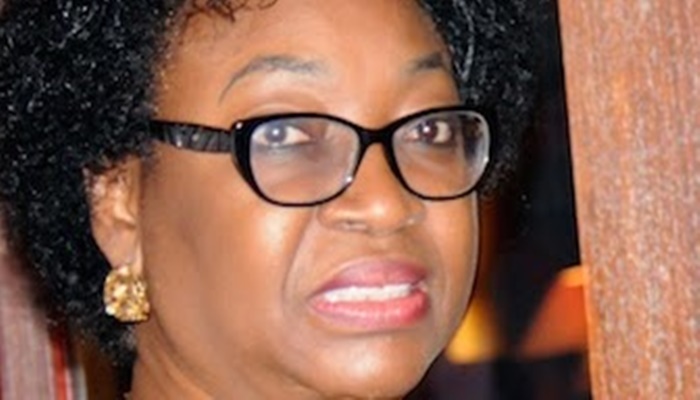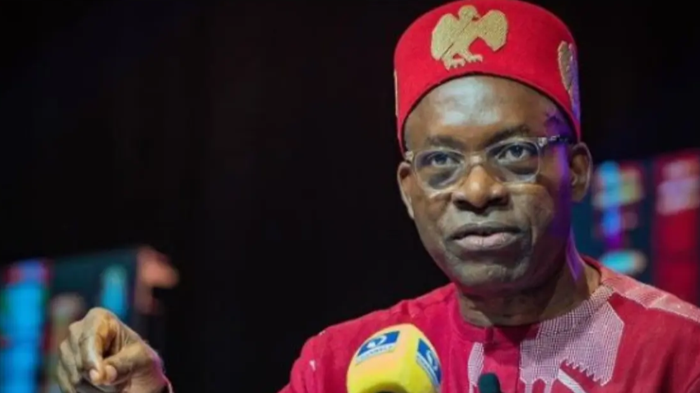
The Federal Government is set to recover about N614 billion national budget support loan faculty it provided for the 36 states of the federation.
Each of the states received N17.5 billion, which was meant to enable them to pay mounting salary, pension arrears and meet other critical needs.
A meeting of the National Economic Council (NEC) presided over by its chairman, Vice President Yemi Osinbajo at the presidential villa, Abuja on Thursday, resolved to set up a team from the Nigeria Governors Forum (NGF) to liaise with the Central Bank of Nigeria (CBN) to determine the repayment procedure.
Minister of Finance, Budget and National Planning, Zainab Ahmed, disclosed these while briefing State House correspondents on the outcome of the NEC meeting.
She said: “The Honourable Minister of Finance briefed NEC on the progress of the facility detailing how the FG has made a total of over N614 billion available to 35 States being N17.5 billion each.
“Council agreed to constitute a team from the Nigerian Governors Forum to meet with the CBN and Ministry of Finance to finalize modalities for commencement of repayment.”
The minister also revealed that the balance on Stabilization Fund Account as at 20th August 2019 and Natural Resources Development Fund as at 20th August 2019 came to a total of $95,329,245.24.
She did not give any report on the balance of the Excess Crude Account (ECA), which she said was still being worked out.
Governor Abubakar Badaru of Jigawa state presented the report of his committee on export promotion to NEC, telling the council that the implementation of the Zero Oil plan will yield $150 billion to the country.
His Nasarawa state counterpart, Abdulahi Sule, who spoke on the report said it was sequel to the Zero Oil Plan, envisioned in the Economic Recovery and Growth Plan (ERGP) which was developed by the Nigeria Export Promotion Council (NEPC).
Sule said the plan detailed the Non-Oil export sector as the last line of defence for the Nigeria Economy.
He added: “The implementation of the plan is expected to yield results in 3 key areas, add an extra UDS150 billion (minimum) to Nigeria’s foreign reserves cumulatively from non-oil exports over the next 10 years; create 500, 000 jobs annually, and lift 20 million Nigerians out of poverty, contributing towards SDG-‘’No Poverty.’”
Quoting the committee chairman, Sule said: “He reported that the committee has recorded the following achievements: designed an implementation Plan for Project implementation; harmonized Export Development Plan Submitted by states; Identified Projects based on the Implementation Plan and States Submissions; set- up Templates and Schematics for Domestic Export Warehouse and Anchor Programme for Exporters.
“Provide processing equipment and conducted Capacity Building Programme on Strategic Products in the Zero Oil Plan in Kaduna, Benue, Ondo, Edo and Imo States. The products are Palm oil, Soya Beans and Ginger.
“Identify Companies for the Domestic Export Warehouse and Aggregation Centre for exportable products.”
The Nasarawa Governor said the Badaru committee also revealed the other achievements of the Zero Oil Plan to date including, “Non- oil exports (excluding natural gas) have risen from U$1.17 billion in 2016 to US$3.16 billion in 2018 meaning that Strategic sectors identified in the Zero Oil Plan have seen growth.”
He added: “For instance, cocoa exports have risen by $79.4 million since 2017, while sesame exports have also increased by $153 million since 2016 – an increase of more than 100% (source: International Trade Centre).
“The plan has identified the creation of five million jobs to date directly supported by no-oil exports, with efforts underway to increase this by 500,000 new jobs annually in line with SDG 8 – “Decent Work and Economic Growth”
“A state Export Development Fund has also been created through N50bn debenture to be disbursed by NEXIM, in which the Central Bank of Nigeria (CBN) has invested.
“The Fund offers long –term loan at a single-digit interest rate to qualifying export-oriented projects under the State Export Development Programme and the Anchor exporter scheme.”
He said council decided to include the Minister of Foreign Affairs as a member of the Committee, that states can freely change their focal persons in the Committee.
The governor said the council decided to follow-up on the obligation of the Nigeria Maritime Administration and Agency NIMASA regarding the financing of Nigerian Export Promotion Council (NEPC).
On polio eradication in Nigeria, Edo State Governor, Godwin Obaseki, spoke on the update presented by Minister of Health, and other health officials, saying that the minister told NEC that 21st August, 2019 marked exactly three years milestone without a case of Wild Polio Virus (WPV) in Nigeria.
He added: “This states our progress towards certification. African region will commence a 6 months period of receiving the criteria for certification.
“There is a need to improve the quality of the campaigns in order to stop the outbreak of the CVDPV2
“Need for increased routine immunization.”
He said the minister however identified some challenges including lack of release of counterpart funds by the Local Government Chairman as one of the key problems in achieving successful routine immunisation, and insecurity concerns in parts of the of country.






